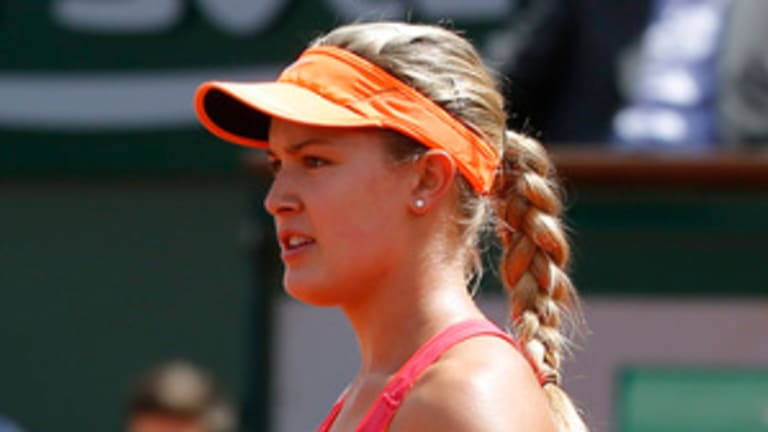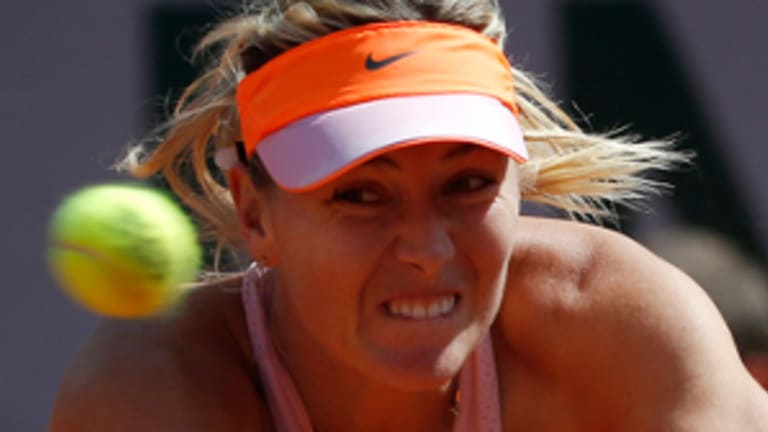PARIS—Maria Sharapova’s scream of “Come on!” was so loud, so visceral, that her entire body clenched like a giant hand when Eugenie Bouchard’s cross-court forehand landed just beyond the baseline, allowing her to consolidate a service break and plough ahead to 4-1 in the third set of this French Open semifinal.
Bouchard, the 20-year-old Canadian, had been bombarding Sharapova with everything in her bay, and yet it never seemed to be quite enough. After that errant forehand, Bouchard looked to her team in the player guest box. She made a miserable gesture of helplessness, and looked as if she were about to burst out in tears.
Sharapova can do that to an opponent; it seems that the closer one comes to beating her, the more bitter the taste when she denies the opportunity. And today Bouchard, the brightest young star in the WTA, came pretty close to that elusive breakthrough win. She won the first set and held level in the second at 5-all before the No. 7 seed passed her by in three sets, 4-6, 7-5, 6-2.
“I don't feel that I played my best tennis today,” Sharapova said afterward. “But to be in the semifinals of a Grand Slam, and winning a match where I felt my opponent played extremely, well, exceptional tennis. I fought, I scrambled, and I found a way to win. I'm happy and proud about that.”
Inevitability-wise, Sharapova at the French Open isn’t quite up there with death and taxes just yet. But she’s getting darned close. This will be her third consecutive final; the last woman to do that was Justine Henin.
Funny you should ask about her. . .
In one of her recent pressers, Sharapova said of the evolution of her clay-court game, “I think the turning point a little bit for me was when I was playing Justine Henin, maybe that was the year before I lost to her in three sets. I was playing in some of the toughest conditions at the French Open, and I won the second set. I don't know. I lost that match, but I got off the court realizing that I could win this tournament. But I still had so much work to do.”
It appears that that work is now completed, and today’s match showed it. This was a much-anticipated clash, not least because Bouchard in some ways appears to be the heir apparent to Sharapova, who at 27 is the oldest of the four semifinalists. Never mind that in the pre-match photo, these two poised and statuesque blondes looked like prom queens; first and foremost, they are blond bombers disinclined to give or ask for quarter.

